

Inside Outside Innovation
Brian Ardinger, Founder of Inside Outside Innovation podcast, InsideOutside.io, and the Inside Outside Innovation Summit
Inside Outside Innovation explores the ins and outs of innovation with raw stories, real insights, and tactical advice from the best and brightest in startups & corporate innovation.
Each week we bring you the latest thinking on talent, technology, and the future of innovation. Join our community of movers, shakers, makers, founders, builders, and creators to help speed up your knowledge, skills, and network.
Previous guests include thought leaders such as Brad Feld, Arlan Hamilton, Jason Calacanis, David Bland, Janice Fraser, and Diana Kander, plus insights from amazing companies including Nike, Cisco, ExxonMobil, Gatorade, Orlando Magic, GE, Samsung, and others.
This podcast is available on all podcast platforms and InsideOutside.io. Sign up for the weekly innovation newsletter at http://bit.ly/ionewsletter. Follow Brian on Twitter at @ardinger or @theiopodcast or Email brian@insideoutside.io
Each week we bring you the latest thinking on talent, technology, and the future of innovation. Join our community of movers, shakers, makers, founders, builders, and creators to help speed up your knowledge, skills, and network.
Previous guests include thought leaders such as Brad Feld, Arlan Hamilton, Jason Calacanis, David Bland, Janice Fraser, and Diana Kander, plus insights from amazing companies including Nike, Cisco, ExxonMobil, Gatorade, Orlando Magic, GE, Samsung, and others.
This podcast is available on all podcast platforms and InsideOutside.io. Sign up for the weekly innovation newsletter at http://bit.ly/ionewsletter. Follow Brian on Twitter at @ardinger or @theiopodcast or Email brian@insideoutside.io
Episodes
Mentioned books
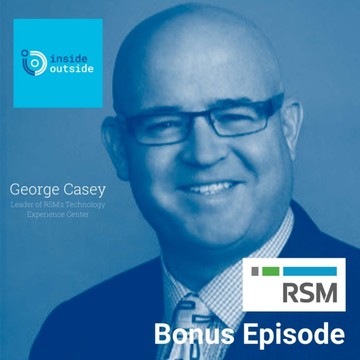
Feb 27, 2020 • 19min
BONUS Ep. - George Casey, Leader of RSM's Technology Experience Center and Microsoft Innovation Leader
This is a special bonus podcast episode with RSM's George Casey. George Casey is the Microsoft Innovation Leader and Leader of RSM's Technology Experience Center. RSM provides audit, tax, and consulting services to help middle market leaders succeed. Brian Ardinger, Inside Outside Innovation founder, talks with George about RSM's Technology Experience Center, collaborative partners, innovation, and digital transformation.Inside Outside Innovation is the podcast that brings you the best and the brightest in the world of startups and innovation. I'm your host Brian Ardinger, founder of Inside Outside, a provider of research, events and consulting services that help innovators and entrepreneurs build better products, launch new ideas, and compete in a world of change and disruption. Each week we give you a front row seat to the latest thinking, tools, tactics, and trends in collaborative innovation. To read the interview transcript, go to http://insideoutside.ioBrian Ardinger: George, welcome to the show. George Casey: Thanks Brian. Glad to be here. Brian Ardinger: Hey, I'm excited to have you on the show. We had a chance to meet a couple of weeks ago, and I had an opportunity to see firsthand what the RSM Technology Experience Center is all about. George, tell us who you are, what's your role at RSM, and then we can talk a little bit about the Experience Center.George Casey: I've been with RSM about five years, but been with this kind of organization that joined RSM through acquisition for almost 20, so been doing this type of work for awhile. And my role at RSM, you described, I'm a partner with the firm and I lead this Microsoft innovation function, which is really helping customers understand from the innovation ecosystem or broad capability set what's possible? How can we look at blurring the lines between what we used to think of as systems or functions or technologies into an overall ecosystem or platform approach to solving business problems? And a lot of what we talk about isn't very technology focused. It's more around digital transformation and business transformation. And that's where the Technology Experience Center really comes into play in giving us a platform to host people and to innovate and ideate and think about real world problems and look around the corner. RSM on YouTube - A playlist with 15 different videos that focus on technology highlights like AI, blockchain, and augmented reality.RSM Technology Experience Center - Videos and case studiesRSM Innovation To read the entire interview transcript, go to http://insideoutside.io Please subscribe and leave a 5-Star Review to help us connect with more innovators. Learn More - If you want to learn more about Inside Outside Innovation's team, our content, our services, check out Insideoutside.io or follow us on Twitter @theIOpodcast or @Ardinger. Until next time, go out and innovate.
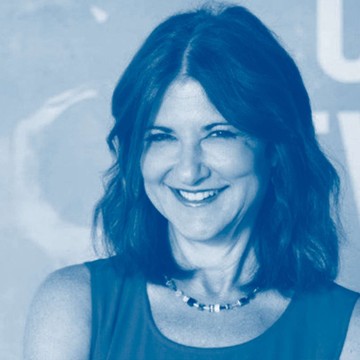
Feb 25, 2020 • 20min
Ep. 188 - Lori Bush, Former Rodan + Fields CEO and Solvasa co-founder on the Beauty of Marketing Disruption
Lori Bush is the co-founder and executive chairman of Solvasa. Prior to that, she was the president and CEO of Rodan + Fields, where she grew the company to over $1 billion in sales. She's had experience with Nu Skin, Johnson & Johnson, Neutrogena and Avon. Brian Ardinger, Inside Outside Innovation Founder talks with Lori about her 30 years of experience in the beauty and skincare space, entrepreneurship and her move towards integrated beauty.Interview Transcript. To read the entire interview transcript, go to http://insideoutside.io Brian Ardinger: On this week's episode of Inside Outside Innovation, we sit down with Lori Bush. Lori is the co-founder and executive chairman at Solvasa. Prior to that, she was the president and CEO of Rodan + Fields, where she grew the company to over $1 billion in sales. She's had experience with Nu Skin, Johnson & Johnson, Neutrogena and Avon, and we talk about her 30 years of experience in the beauty and skincare space, entrepreneurship and the move towards integrated beauty, pulling together beauty, mindfulness, and wellness. Let's get started. Inside Outside Innovation is the podcast that brings you the best and the brightest in the world of startups and innovation. I'm your host Brian Ardinger, founder of Inside Outside.IO, a provider of research events and consulting services that help innovators and entrepreneurs build better products, launch new ideas, and compete in a world of change and disruption. Each week we'll give you a front row seat to the latest thinking tools, tactics, and trends in collaborative innovation. Let's get started. Welcome to another episode of Inside Outside Innovation. I'm your host Brian Ardinger, and as always, we have another amazing guest. With me today is Lori Bush. Lori is the co-founder and executive chairman of Solvasa, an integrative beauty line, which really pulls together beauty, mind, and wellness. Lori, welcome to the show. Lori Bush: Thank you, Brian. Humbled, honored to be here. Brian Ardinger: I'm excited to have you on because while I gave your current title, I'm very impressed with your background. Thirty plus years in the beauty space, and you have quite an impressive resume. Folks who are not as familiar with you. You were the president and CEO of Rodan + Fields. You grew that company to over $1 billion in sales. You were the President of Nu Skin. You have worked at Johnson & Johnson and Neutrogena, and you're chair of the board at Avon. You pretty much got it all covered. Startups, corporates, innovators. So I thought I'd start with the fact that you've had a career spanning a number of different years in an industry that's changed. What has happened over the last decade or so that's really changed the beauty industry and what are the things that are most impressive.Lori Bush: A great question because when we were launching Rodan + Fields March 1, 2008, I was standing on a stage in front of about a hundred people, which reflecting on that is funny, because today Rodan + Fields fills stadiums basically with people for meetings and events. So at this point, I stood in front of the stage and I boldly proclaimed that five years from now, both beauty skincare and direct selling, we're going to look different than they look today, and the people in this room have an opportunity to watch it happen, wonder what happened, or be part of it. And as I was standing there saying it, what was going through my head is we had lofty goals, but we were a brand new startup effectively, doing a complete pivot from pulling out of department stores where the brand had actually been owned by Estee Lauder for a period of time and relaunching. And as I was standing on stage saying that my website was melting down, we were one of the first companies, in direct selling to really launch as a purely digital eCommerce transaction model, which we did for a number of reasons. And what was really an unexpected outcome of the Rodan + Fields experience was it wasn't even just about taking significant market share, which we were able to do to become the leading. Independent skincare brand, and then ultimately the company became the number one skincare brand in North America. We actually, and significantly grew the skincare market in the United States. Materially grew the skincare market. And a lot of that had to do with bringing the right channel strategy and being innovative in that channel strategy to the product value proposition and marrying the two and aligning them appropriately, in ways that were leveraging a lot of other things that were happening in the ecosystem around us at the time. Not the least of which, of course was social media. To read the entire interview transcript, go to http://insideoutside.io
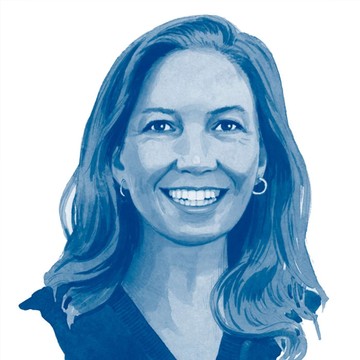
Feb 18, 2020 • 20min
Ep. 187 - Audrey Crane, Author of What CEOs Need to Know About Design and Partner at Design Map
Audrey Crane is author of the new book, What CEOs Need to Know About Design: A business leader's guide to working with designers and a partner at Design Map. Brian Ardinger, Inside Outside Innovation Founder talks with Audrey about some of the trends in Design Thinking, how to hire better designers, and what are some of the differences she's seeing in the Midwest versus the Silicon Valley design scene.Interview Transcript. (To read the entire interview transcript, go to http://insideoutside.io)Brian Ardinger: On this week's episode of Inside Outside Innovation, we sit down with Audrey Crane. Audrey is a partner at Design Map and author of the new book, What CEOs need to know about design: A business leader's guide to working with designers. We had a great conversation talking about some of the trends in Design Thinking, how to hire better designers, and what are some of the differences she's seeing in the Midwest versus the Silicon Valley design scene. Now on with the show. Inside Outside Innovation is the podcast that brings you the best and the brightest in the world of startups and innovation. I'm your host Brian Ardinger, founder of InsideOutside.IO, a provider of research events and consulting services that help innovators and entrepreneurs build better products, launch new ideas, and compete in a world of change and disruption. Each week we'll give you a front row seat to the latest thinking, tools, tactics, and trends, and collaborative innovation. Let's get started. Welcome to another episode of Inside Outside Innovation. I'm your host Brian Ardinger, and as always, we have another amazing guest. Today with me is Audrey Crane. Audrey is a partner at Design Map and author of a new book called What CEOs need to know about design. Audrey, welcome to the show. Audrey Crane: Thank you so much Brian Brian Ardinger: I'm excited to have you on the show because you've been recommended by half the people that I know in this design and lean startup space as a person I should have on the show to talk about what's going on. For folks who may not have heard of you, give us a little background on you and how you got into this design space and what's keeping you busy right now. Audrey Crane: My background goes back a while, actually. I studied math in theater in college. I was actually in college when I saw the Mosaic browser for the first time. I was using muds and like old fashioned nerdy stuff like that. I had always worked in high tech though my father and my mother were both computer programmers and so my summer job was QA and stuff like that. I came out to California to act and got a day job at a little company called Netscape. So yeah, happily, most people have still heard of it. I'm still waiting for the day when some young person has not. I was there and I met Hugh Deverly, who was a huge influence on my life, a really big deal. He's not great at self-promoting, but a really big deal inside the design world, and he was a designer by trade and training and kind of showed me the world of design and marriage of right brain and left brain, really worked for me. It really resonated. When he left to start Deverly design office, I went with him and was incredibly lucky to be the first employee there. Was there for quite a while. I left and went internal and ran my own design team and then left again and joined Design Map as a partner nine years ago now. I head up the research arm of Design Map. Many people with lots of experience and skills there, but I pitch in there where I can and then do show up in client engagements when I'm helpful and try to go away when I'm not. That's my job.To read the entire interview transcript, go to http://insideoutside.io Please subscribe and leave a 5-Star Review to help us get the IO podcast heard. Thank you!
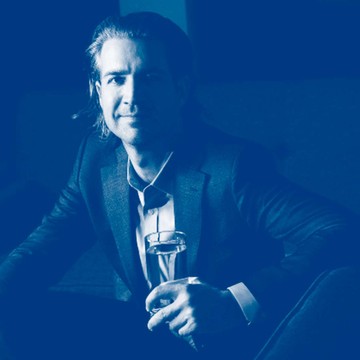
Feb 11, 2020 • 20min
Ep. 186 - Raz Razgaitis, FloWater CEO on Disrupting the Water Business
Raz Razgaitis, co-founder and CEO of FloWater, talks with Brian Ardinger, Inside Outside Innovation Founder, about the disruption that's happening in the water business, what it's like to be working in a big company and move to a startup, and everything in between. Interview Transcript (To read the entire interview transcript, go to http://insideoutside.io) Brian Ardinger: On this week's episode of Inside Outside Innovation, we interviewed Raz Razgaitis. He is the co-founder and CEO of FloWater. We talk about the disruption that's happening in the water business, what it's like to be working in a big company, and move from there to a startup, and everything in between. Let's get started. Inside Outside Innovation is the podcast that brings you the best and the brightest in the world of startups and innovation. I'm your host, Brian Ardinger, founder of InsideOutside.IO, a provider of research events and consulting services that help innovators and entrepreneurs build better products, launch new ideas, and compete in a world of change and disruption. Each week we'll give you a front row seat to the latest thinking tools, tactics, and trends, in collaborative innovation. Let's get started. Welcome to another episode of Inside Outside Innovation. I'm your host, Brian Ardinger, and as always, we have another amazing guest today with me is Raz Razgaitis. He is the co founder and CEO of FloWater. Raz, welcome to the show. Raz Razgaitis: Thanks Brian. Great to be here. Brian Ardinger: I'm excited to have you on board because you're trying to disrupt this new world of water. So let's start there and talk a little bit about FloWater. Raz Razgaitis: Well, Brian, our whole mantra is really around changing the way the world drinks water. The foundation of our company is to provide decentralized distributed water purification wherever consumers work, rest and play. So that they can have what we believe is the world's best tasting water, on tap, wherever they are. And the purpose behind that is to completely eradicate, not only single use plastic water bottles, which are the new environmental cigarette, but also to provide a pathway to eliminate all packaged water. Because not only does it end up in oceans, lakes, rivers, and landfills. For example, right now, Americans are drinking the equivalent of two credit cards worth of plastics. Microplastics. Wow. Every month as a result of their tap and bottled water. It's not just bottled water, but they're actually drinking their bottled water that's in now microplastics in their tap water. Exactly. We're literally now drinking our plastics, and the whole idea of our company is to completely eradicate that. And what we're doing is we've built a piece of technology and a piece of hardware that right now, it's primarily available to businesses and companies and organizations. And so that's generally hotels, schools, corporations, gyms, retailers, where we provide a FloWater refill station that has a very powerful purification system in it, that takes any tap water effectively anywhere in the world and turns it into something that will be better tasting than your favorite bottled water brand. But it's available in a refillable format so that you are reusing either a multiuse bottle or a refillable bottle, or even a single use bottle that you're refilling. So if you end up having to buy a single use plastic water bottle, but you get to refill that five times, we've just seen an 80% reduction in the usage of single use packaging, which is a great thing. To read the entire interview transcript, go to http://insideoutside.io Please subscribe and leave a 5-Star Review to help us get the IO podcast heard. Thank you!
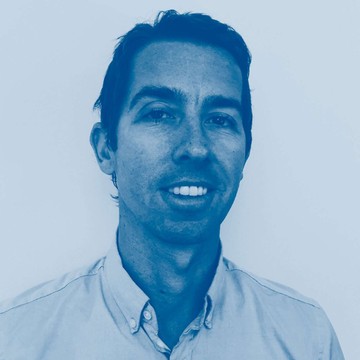
Feb 4, 2020 • 17min
Ep. 185 - Stuart Willson, Radicle CEO on Insights Powering Better Corporate Decisions
Stuart Willson is the CEO and founder of Radicle, a research and advisory company that has worked with great companies like Lego, Diageo, Proctor and Gamble, and more. Brian Ardinger, Inside Outside founder talks with Stuart about the new trends in the world of research, how companies are using information and data to make better decisions, and about the new venture model that companies like Prehype are using to create startups from scratch. Interview Transcript - To read the entire interview transcript, go to http://insideoutside.ioBrian Ardinger: On this week's episode of Inside Outside Innovation, we sit down with Stuart Willson. Stuart is the CEO and founder of a company called Radicle. It's a research and advisory company that has worked with great companies like Lego, Diageo, Proctor and Gamble, and more. In our interview, you'll hear some insights about the new trends in the world of research, how companies are using information and data to make better decisions, and we talk a lot about what's the new venture model that companies like Prehype are using to create new startups from scratch. Have a listen. Inside Outside Innovation is the podcast that brings you the best and the brightest in the world of startups and innovation. I'm your host Brian Ardinger, founder of InsideOutside.IO, a provider of research events and consulting services that help innovators and entrepreneurs build better products, launch new ideas, and compete in a world of change and disruption. Each week we'll give you a front row seat to the latest thinking tools, tactics, and trends and collaborative innovation. Let's get started. Welcome to another episode of inside, outside innovation. I'm your host Brian Ardinger, and as always, we have another amazing guest with us today is Stuart Willson. He is the cofounder and CEO of Radicle, a new research and advisory business. He's here to talk about some of the changes and trends that he's seeing. Stuart, welcome to the show. Stuart Wilson: Thank you for having me. Brian Ardinger: I am so excited to have you back. You were at the IO Summit and you had a great talk about some of the new trends that you're seeing. Before we jump into that and talking about Radicle, I want to talk about how you got into the innovation space cause it's a little bit different than your traditional entrepreneur. Stuart Wilson: I like to say I have a fairly nontraditional background relative to my peers and by which, I mean I had a pretty traditional background for most of my career. I worked and investment banking out of college. I went and got my MBA and then I was looking for a job where I've been learning a lot and be challenged and get paid to be right. And I ended up at a hedge fund and for 11 years. I was an investor investing everything from media to ski resorts and ultimately starting my own fund with a partner. But then as is often the case in New York, my circle of friends shifted somewhat and I was introduced to and became friends with a group of people that included folks like Ben Leventhal who just sold Resy to Amex and my friend Josh Abramson, who had started College Humor, friends who were at places like Spark and Union Square, and I was the only person sitting up on Park Avenue, looking at a Bloomberg machine. And the more time I spent with them and the more I listen to what they're doing, the more I felt like I was really wasting my time and that there was this transformation happening as waves of new technologies created opportunities and democratized business building. But I wasn't participating in that and I wasn't really doing anything that I felt was driving value or utility for our customer. And so I decided to leave and I was introduced to Henrik Berglin, who started the incubator Prehype. And cofounded Bark, a dog focused startup, formerly Bark box. I told him what I wanted to do, which was to build something like pretty abstract. To read the entire interview transcript, go to http://insideoutside.io
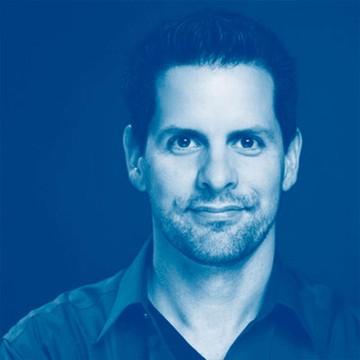
Jan 28, 2020 • 20min
Ep. 184 - Tim Campos, Facebook's Former CIO and Woven Founder on Disrupting the Calendar
Tim Campos, former CIO of Facebook, is now founder and CEO of Woven, a startup tackling the world of calendaring. Brian Ardinger, Inside Outside Innovation Founder had a chance to talk with Tim about the future of innovation, how IT infrastructure has changed, what it's like to work in a high growth startup, and what it's like to rebuild a company from scratch. Interview Transcript (To read the entire interview transcript, go to http://insideoutside.io )Brian Ardinger: On this week's episode of Inside Outside Innovation, we sit down with Tim Campos, the former CIO of Facebook and new entrepreneur with a company called Woven that is tackling the whole world of calendaring. We had a chance to talk about the future of innovation, how IT infrastructure has changed, what it's like to work in a high growth startup, and then what it's like to rebuild a company from scratch. Inside Outside innovation is the podcast that brings you the best and the brightest in the world of startups and innovation. I'm your host Brian Ardinger, founder of InsideOutside.IO. A provider of research events and consulting services that help innovators and entrepreneurs build better products, launch new ideas, and compete in a world of change and disruption. Each week we'll give you a front row seat to the latest thinking tools, tactics, and trends, and collaborative innovation. Let's get started. Welcome to another episode of Inside Outside Innovation. I'm your host Brian Ardinger, and as always, we have another amazing guest. Today is Tim Campos. He is the former CIO at Facebook from 2010 to 2016 he was a VP of it at semiconductor company, KLA-Tencor, and he has recently jumped back into the startup scene with his own company called Woven. Tim, welcome to the show. Tim Campos: Thanks for having me. I'm super excited to be here. Brian Ardinger: I'm excited to have you on board because I think you can speak to a lot of the things that our audience is interested in hearing about. Everything from startups to corporate innovation, and you seem to have played a role in a variety of those different types of spaces and are continuing to do so. Let's start in the Facebook world. How you got there and what's it like to work with a high-growth company when you have to double the productivity of employees when they're growing at 20 X growth rate. Tim Campos: It gets crazy enough just to double the number of employees. And to do that time and time again every year. Yeah, so I got to Facebook. It was really a big culmination of a lot of aspects in my career. When I started, I was an engineer, software engineer, and I've always loved technology and building. I spent the first half of my career in software engineering and then got exposed to IT at a startup when I was working in a software as a service company. And that really taught me. Two things. One, what you build and what people use those different perspectives and technology as you do that. But also there's a business around technology and that's really what got me interested in information technology and how I became CIO. And ultimately that landed me at Facebook. But my life has very much been defined by building things that help make people more productive, help people get more stuff done and that taken care of steer through what I'm doing today with Woven mind startup as a productivity software company and this is what we exist to do, is help people spend time on what matters most. To read the entire interview transcript, go to http://insideoutside.io
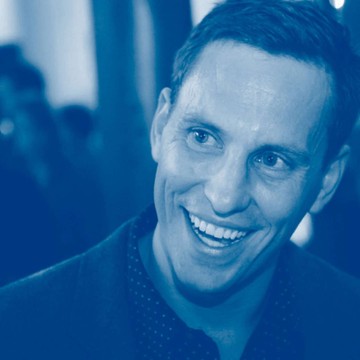
Jan 14, 2020 • 15min
Ep. 182 - Brendan Synnott, Cofounder of Bear Naked, Evol Foods, and Pact
On this week's episode of Inside Outside Innovation, Brian Ardinger, IO Founder, sat down with Brendan Synnott, a serial entrepreneur, having cofounded companies like Bear Naked, which he sold to Kellogg, Evol Foods, and now Pact, an e-commerce organic fashion brand. In this interview we talked about Brendan's opportunity to become an entrepreneur early on in his life, how he grew his company from zero to sell to a major corporation, and how he thinks about creating new innovations and new spaces. Interview Transcript (To read the entire interview transcript, go to http://insideoutside.io.)Brian Ardinger: On this week's episode of Inside Outside Innovation, we sat down with Brendan Synnott. Brendan is a serial entrepreneur, having cofounded companies like Bear Naked, which he sold to Kellogg. He's found companies like Evol Foods, and he's now working at Pact, a brand-new e-commerce fashion brand. In this interview we talked about Brendan's opportunity to become an entrepreneur early on in his life. How he grew his company from zero to sell it to a major corporation. And how he thinks about creating new innovations and new spaces. Inside Outside Innovation is the podcast that brings you the best and the brightest in the world of startups and innovation. I'm your host, Brian Ardinger, founder of Inside Outside.IO, a provider of research events and consulting services that help innovators and entrepreneurs build better products, launch new ideas, and compete in a world of change and disruption. Each week we'll give you a front row seat to the latest thinking tools, tactics, and trends in collaborative innovation. Let's get started. Welcome to another episode of Inside Outside Innovation. I'm your host Brian Ardinger, and as always, we have another amazing guest. Today with me is Brendan Synnott. He is a serial entrepreneur having cofounded the companies like Bear Naked Granola, which he sold to Kellogg. He started companies with Evol Foods, pet companies, candy businesses, and now he's in the fashion space with a company called Pact. Welcome to the show Brendan. Brendan Synnott: Thanks so much for having me. Looking forward to talking about innovation. It's my favorite subject in business. Brian Ardinger: You have got a lot to talk about and you've had a very eclectic career over the course of the last decade or so, starting and forming businesses that have gone from nothing to something. Have you always been an entrepreneur and what led you to the path of entrepreneurship? Brendan Synnott: I think I've always had that spirit in me. I was blessed by having two grandfathers that both had started their own businesses. One was a printing brokerage and one was a engineering firm. Both small businesses, but I grew up with that culture within my family about saying, you can do what you want. You can see it go after it. And then that led me to always starting little businesses growing up. I remember going to the Costco when I was a kid and buying 150 lemon heads or you know, for $8 and then go sell them on the street. Or go sell them in school or whatever it may be. And I had a number of businesses before I hit my first big one. But it was something that I was always just like, ah, let's go try it, let's go get after it. let's go see what happens. Brian Ardinger: I think you got your big break when you've cofounded Bear Naked in the granola space and you eventually sold that to Kellogg. What were some of the early lessons of entrepreneurship that you can share with our audience? To read the entire interview transcript, go to http://insideoutside.io.
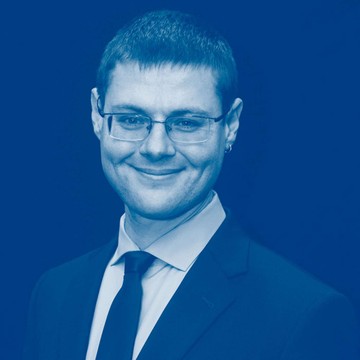
Jan 7, 2020 • 18min
Ep. 181 - Gleb Tsipursky, Author of Never Go With Your Gut: How Pioneering Leaders Make the Best Decisions and Avoid Business Disasters
In this episode, Brian Ardinger, Inside Outside Innovation Founder, talks with Gleb Tsipursky, Author of Never Go With Your Gut: How Pioneering Leaders Make the Best Decisions and Avoid Business Disasters (Avoid Terrible Advice, Cognitive Biases, and Poor Decisions). They discuss bad business decisions, why they go wrong, emotions impacting decision making, making best case plans, iterative planning, great leaders, and high-impact shortcuts Interview Transcript (To read the entire interview transcript, go to http://insideoutside.io.)Brian Ardinger: Inside Outside Innovation is the podcast that brings you the best and the brightest in the world of startups and innovation. I'm your host, Brian Ardinger, founder of Inside Outside.IO, a provider of research, events, and consulting services that help innovators and entrepreneurs build better products, launch new ideas, and compete in a world of change and disruption. Each week we'll give you a front row seat to the latest thinking tools, tactics, and trends, and collaborative innovation. Let's get started. Welcome to another episode of Inside Outside Innovation. I'm your host Brian Ardinger, and as always, we have another amazing guest. Today with me is Gleb Tsipursky, he is a cognitive neuroscientist, an expert on behavioral economics and decision making. He runs a company called Disaster Avoidance Experts. He's worked with companies like Aflac and IBM and Honda, Wells Fargo, and many, many others. Welcome to the show Gleb. Gleb Tsipursky: Thank you so much for having me on, Brian. It's a pleasure. Brian Ardinger: I'm excited to have you on because you've got a brand-new book out called Never go with your gut: How pioneering leaders make the best decisions and avoid business disasters, and it's also very pertinent to our audience. This whole world of innovation and how do you make decisions in a world that's constantly changing. Let's start off with a little bit of background about yourself. Gleb Tsipursky: I was fascinated by how my parents made some bad decisions with each other, and it got me fascinated in decision making. You know, my dad, he was a real estate agent, so he had the variable income and he hid some money from my mom and bought a house on the side. And when she found out she was really pissed. And that led to a big blowout fight, which led to them separating for a while and then they got back together. But you can never really rebuild the trust again. And then when I was growing older, I came of age. In 1999 is when I was 18 and all the dotcoms were booming. WebVan, Pets.com and so on. All of these businesses, which. By the time I was 21 they all went bust. And that was really frustrating for me as someone who was observing it and seeing all these people who are supposedly smart, wealthy people, investing ordinary citizens, you know, people whose retirement went down the drains when things went bust. And I'm someone who really cares about people. I have utilitarian values. I want the most good for the most number. And so that's really motivated me to study decision making. What causes people to make bad decisions. What caused them to make good decisions and how we as individuals, leaders, investors, innovators, can make better decisions going forward. Why Decisions Go Wrong Brian Ardinger: Why do decisions go wrong? Gleb Tsipursky: The most important reason why decisions go wrong is that we don't notice how our emotions influence our decisions. The research on this topic and cognitive neuroscience shows that our emotions drive about 80 to 90% of our decision making, and we don't realize how much we're driven by our emotions. People make their decisions often based on their best reactions. They feel something is right and therefore they do it. They feel this information is true and therefore they believe it. To read the entire interview transcript, go to http://insideoutside.io
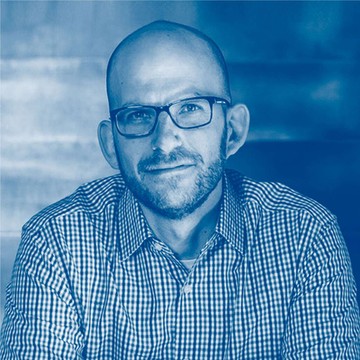
Dec 31, 2019 • 23min
Ep. 180 - Jeff Gothelf, Co-Author of Lean UX, Sense & Respond, and Lean vs Agile vs Design Thinking on Building a Culture of Innovation
As one of Inside Outside's most listened to podcasts of 2019, enjoy our interview with Jeff Gothelf. It was originally published on July 16, 2019. Jeff Gothelf, Co-Author of Lean UX, Sense & Respond, and Lean vs Agile vs Design Thinking talks with Brian Ardinger, Inside Outside Innovation founder, about building a culture of innovation. Key Ideas - Shifting from outputs to outcomes. - Changing incentives. - Find the person and team with the political capital to prove out the validity and scalability. - Reward learning in a way that focuses on ideas that are likely to succeed. - Incentivize learning and being transparent. - Story telling and marketing of efforts. - Overcoming national cultural traits. - Language and ideas are universal, but hard to implement. - Failure of the Corporate Innovation Lab. Create an innovation path. For More Information For more information, check out Jeffgothelf.com. If you enjoyed this podcast, you might also enjoy: Ep. 37 – Josh Seiden & Jeff Gothelf, authors of “Sense and Respond” Ep. 90 – Teresa Torres w/ Product Talk Ep. 103 – Andi Plantenberg on Entrepreneurial Capabilities in Teams Ep. 140 – Melissa Perri, Escaping the Build Trap Author and Produx Labs CEO Find this episode of Inside Outside Innovation at insideoutside.io. You can also listen on Acast, iTunes, Sticher, Spotify, and Google Play. FREE INNOVATION NEWSLETTER Get the latest episodes of the Inside Outside Innovation podcast, in addition to thought leadership in the form of blogs, innovation resources, videos, and invitations to exclusive events. SUBSCRIBE at Insideoutside.io
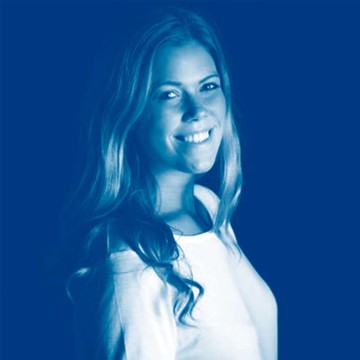
Dec 24, 2019 • 20min
Ep. 179 - Acceleprise’s Olivia O'Sullivan on Investing in Corporate/Startup Collaboration
As one of Inside Outside's most listened to podcasts of 2019, enjoy our interview with Olivia O'Sullivan of Acceleprise. It was originally published on June 18, 2019. Olivia O'Sullivan is the Head of Corporate Engagement at Acceleprise, a B2B SaaS accelerator. Accelerprise invests in early-tech companies building enterprise technology. Olivia's focus is on mid-market and enterprise companies interested in collaborations with startups. Her background includes work in advertising and on product and innovation teams for McDonald's and Dow Jones. Olivia spoke with Brian Ardinger, Inside Outside Innovation Founder, about corporate/startup matchmaking, trends and Acceleprise's future. Key factors in selecting startups include: - Understanding the founding team. Can they solve the challenge? - Traction and product market fit. Want to accelerate growth. - Thresholds and levels of expectations. - Collaboration on the product. Emphasis on the initial period where you make introductions. The missing piece is how to transition into providing impact. - Make sure two groups of people are set up to participate with each other and engage in a partnership. - Provide long-term strategic support. - Innovation doesn’t happen in a silo. Need a long-term strategy. Participate in the ecosystem before you see change. Corporations are in different places in innovation - Companies wanting roundtables and market intelligence. - Companies with established processes and venture teams. New Trends - Ten years ago, there were lots of corporate accelerators. Now a lot of established independent accelerators doing great work. - Now more meaningful partnership doing co-collaboration with startups. - Financial services companies are partnering with startups. - Health tech - Unlocking the power of data in the health world. What are the core skills for entrepreneurs? - Long-term vision and steps to get there. - Someone who will get the work done to get over hurdles. - People who are connectors on the corporate innovation side. What’s next for Acceleprise - Kick off upcoming programs in SF and NY - Investing in another 20 companies. Already invested in over 100. - Opening office in Toronto. For More Information For more information on Acceleprise or to connect with Olivia check out https://acceleprise.vc If you enjoyed this podcast, you might also enjoy: Ep. 139 – Northwestern Mutual’s Vivek Bedi on Digital Transformation in the Financial Industry Ep. 137 – Deloitte’s Michael Frankel on Growth, Hybrid Talent & Corporate/Startup Collaboration Ep. 127 – Vanguard & CEC’s John Buhl on Lean Startup at Scale Find this episode of Inside Outside Innovation at insideoutside.io. You can also listen on Acast, iTunes, Sticher, Spotify, and Google Play. FREE INNOVATION NEWSLETTER Get the latest episodes of the Inside Outside Innovation podcast, in addition to thought leadership in the form of blogs, innovation resources, videos, and invitations to exclusive events. SUBSCRIBE at insideoutside.io


